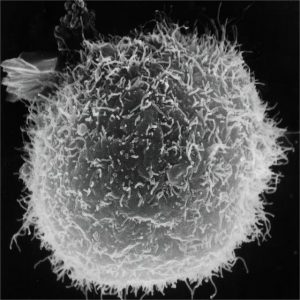Featured Products
Explore Products
- In-Stock Tumor Cell Lines
- Human Orbital Fibroblasts
- Human Microglia
- Human Pulmonary Alveolar Epithelial Cells
- Human Colonic Fibroblasts
- Human Type II Alveolar Epithelial Cells
- Human Valvular Interstitial Cells
- Human Thyroid Epithelial Cells
- C57BL/6 Mouse Dermal Fibroblasts
- Human Alveolar Macrophages
- Human Dermal Fibroblasts, Adult
- Human Lung Fibroblasts, Adult
- Human Retinal Muller Cells
- Human Articular Chondrocytes
- Human Retinal Pigment Epithelial Cells
- Human Pancreatic Islets of Langerhans Cells
- Human Kidney Podocyte Cells
- Human Renal Proximal Tubule Cells



 The MH-S cell line is a continuous culture of murine alveolar macrophages (AM), originally derived from bronchoalveolar lavage cells of Balb/cJ mice via transformation with simian virus 40 (SV40). These cells are characterized by their adhesion properties, with a doubling time of approximately 48 hours. MH-S cells maintain typical macrophage morphology, with over 98% esterase-positive cells, while being negative for peroxidase. They lack contact inhibition, and is sensitive to trypsin treatment. MH-S express intracellular T-antigen and manifest DNA synthesis through the incorporation of 3H-thymidine. They further express cell surface markers, including Ia and Mac-1 antigens, and exhibit Fc receptor positivity. Notably, MH-S cells maintain a key functional property of freshly isolated alveolar macrophages: the capacity to suppress the in vitro plaque-forming cell (PFC) response in a dose-dependent manner when co-cultured with splenic lymphocytes.
The MH-S cell line is a continuous culture of murine alveolar macrophages (AM), originally derived from bronchoalveolar lavage cells of Balb/cJ mice via transformation with simian virus 40 (SV40). These cells are characterized by their adhesion properties, with a doubling time of approximately 48 hours. MH-S cells maintain typical macrophage morphology, with over 98% esterase-positive cells, while being negative for peroxidase. They lack contact inhibition, and is sensitive to trypsin treatment. MH-S express intracellular T-antigen and manifest DNA synthesis through the incorporation of 3H-thymidine. They further express cell surface markers, including Ia and Mac-1 antigens, and exhibit Fc receptor positivity. Notably, MH-S cells maintain a key functional property of freshly isolated alveolar macrophages: the capacity to suppress the in vitro plaque-forming cell (PFC) response in a dose-dependent manner when co-cultured with splenic lymphocytes.